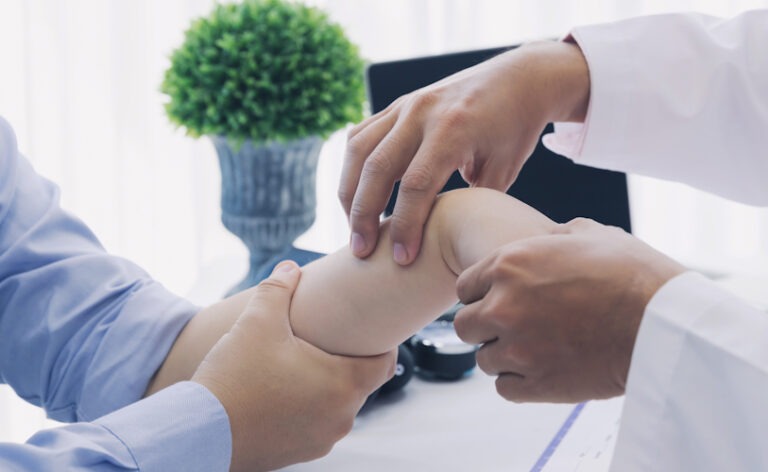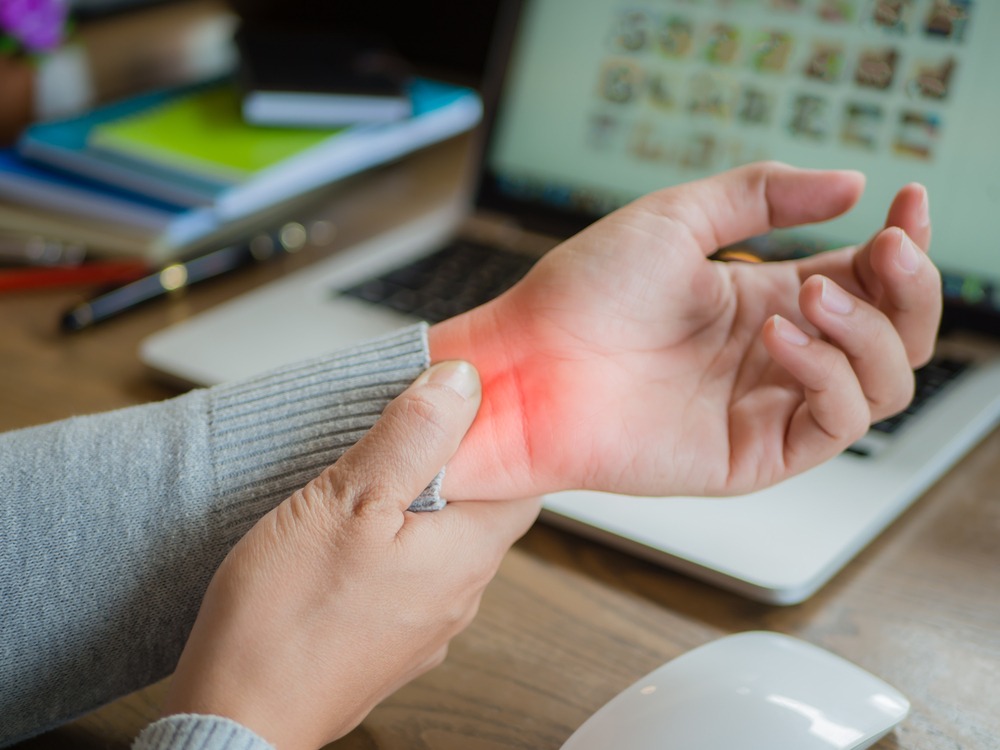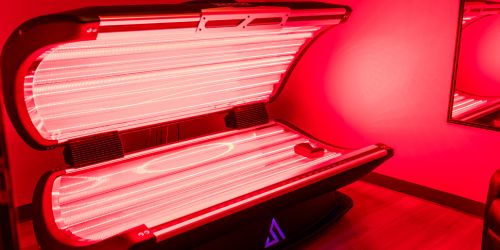Carpal tunnel syndrome and repetitive strain injuries, often resulting from extended computer and device use, cause discomfort and numbness in the hands and wrists. These conditions disrupt daily activities, and many are seeking effective treatments that don’t just deaden the pain but that also heal the tissues. At LaserLab, we have targeted solutions for this and other types of pain.
We offer the Summus Laser as a therapeutic option for carpal tunnel syndrome and repetitive strain injuries. This treatment focuses on symptom relief and improved functionality. At LaserLab, we combine advanced technology with a wide range of spa-like amenities for effective treatments.
What Is Carpal Tunnel Syndrome?
The carpal tunnel is a confined channel in the wrist, surrounded by bones and ligaments, serving as the pathway for the median nerve. This particular nerve is crucial for hand sensation and movement control. Carpal tunnel syndrome arises when there’s pressure on this nerve, causing distinct symptoms associated with the condition.
Carpal Tunnel Syndrome Symptoms
Symptoms of carpal tunnel syndrome often start gradually, with tingling or numbness in the fingers or hand, usually excluding the little finger. Often, this sensation extends from the wrist up the arm. Individuals may also experience a persistent sense of weakness in their hands, leading to difficulties in gripping objects or performing manual tasks.
What Are the Causes of Carpal Tunnel Syndrome
The onset of carpal tunnel pain is frequently linked to a combination of factors. These can include genetic predispositions where the carpal tunnel is smaller in some people or certain conditions like rheumatoid arthritis, diabetes, and hormonal fluctuations. Additionally, extended periods of repetitive hand motions, particularly with the wrist in an awkward position, can contribute to the development of this syndrome.
What Are Repetitive Strain Injuries?
Repetitive strain injuries, commonly known as RSIs, refer to discomfort or pain in muscles, tendons, and nerves mainly caused by repeated activities and excessive use. These injuries typically impact the upper body areas such as wrists, hands, forearms, elbows, neck, and shoulders but can be seen in other parts of the body, too. RSIs often arise from continuous tasks, intense efforts, exposure to vibrations, or maintaining prolonged or awkward positions during activities.
Types of Repetitive Strain Injuries
Repetitive strain injuries encompass a range of conditions, including tendinitis, carpal tunnel syndrome, and bursitis. Each type is characterized by varying symptoms but commonly involves pain, aching, tenderness, stiffness, and tingling or numbness. The specific nature of an RSI is often related to the particular activity or occupation causing the strain.
How RSIs Develop Over Time
The development of a repetitive strain injury is typically gradual. Initially, symptoms might only occur while performing the repetitive task and ease when the task is stopped. However, without intervention or changes in activity, the symptoms can become constant and more intense, potentially leading to prolonged pain or even reduced mobility in the affected area.
Risk Factors for RSIs
Factors increasing the risk of RSIs include repeated activities, particularly those involving high intensity or long durations without sufficient breaks. Those in occupations involving computer work, assembly line tasks, or heavy manual labor are particularly prone. Poor posture or a non-ergonomic workstation can also contribute, as can pre-existing health conditions that affect the muscles and joints.

The Intersection of CTS and RSIs
Is Carpal Tunnel a Type of RSI?
Carpal tunnel syndrome is often classified as a type of repetitive strain injury. This classification is due to its common cause: repetitive motion and overuse, leading to strain and injury in the wrist’s median nerve. However, some people can get CTS even without repetitive motion.
A Comparison of Symptoms
While both carpal tunnel and other repetitive strain injuries can manifest as pain, numbness, and tingling in the affected areas, there are distinctive symptoms for each. Repetitive strain injuries might present with swelling, stiffness, and a throbbing sensation, often in various body parts. In contrast, carpal tunnel specifically affects the hand and wrist, with symptoms typically concentrated in the thumb, index, and middle fingers.
Diagnosis and Identification
Identifying and diagnosing carpal tunnel syndrome involves a combination of patient history, physical examination, and sometimes diagnostic tests like nerve conduction studies. The process is aimed at distinguishing carpal tunnel syndrome from other types of RSIs, which may require different approaches for effective management.
Treatment Strategies at Our Pain Therapy Center
What Is the Summus Laser?
The Summus Laser is a therapeutic tool that uses Class IV laser technology and can be used for CTS and RSI relief. This technology works by delivering specific wavelengths of light to target tissues, promoting cellular energy and repair processes. It’s designed to penetrate deeper than traditional therapies, offering an innovative and more effective approach to pain management and tissue healing.
How Can the Summus Laser Help With CTS and RSIs?
As a carpal tunnel syndrome treatment, the Summus Laser can reduce inflammation and accelerate tissue repair. It can also encourage cellular regeneration and increase blood flow, essential for healing repetitive strain injuries and CTS. The laser’s precise targeting ability provides focused treatment, enhancing its effectiveness as a carpal tunnel syndrome therapy.
What to Expect From Your Treatment
When undergoing carpal tunnel syndrome therapy with the Summus Laser, patients can anticipate a gentle yet effective approach. The carpal tunnel treatment sessions are typically short, with many patients reporting a warm, soothing sensation during the process. The non-invasive nature of this treatment means no recovery time, allowing for a quick return to daily activities.

Extras for a Comprehensive Treatment
As part of your RSI or carpal tunnel syndrome treatment, we offer an immersive and comforting environment to enhance your healing experience. This includes revitalizing spa-like amenities, complementary aromatherapy, and calming music, all set against a backdrop of relaxing waterfalls and oxygen-rich rooms. For maximum comfort, our adjustable treatment tables come equipped with face cradles. Our facility also features a hydration station and state-of-the-art stim machines, which can increase the benefits of your treatment.
Reduce Carpal Tunnel Pain With Our Class IV Laser
At LaserLab, we can offer carpal tunnel relief and advanced healing for repetitive strain injuries with our laser therapies. The combination of our cutting-edge technology and our nurturing environment can enhance your recovery experience. To learn more about how we can help, fill out our online form for further information or to schedule a consultation.


